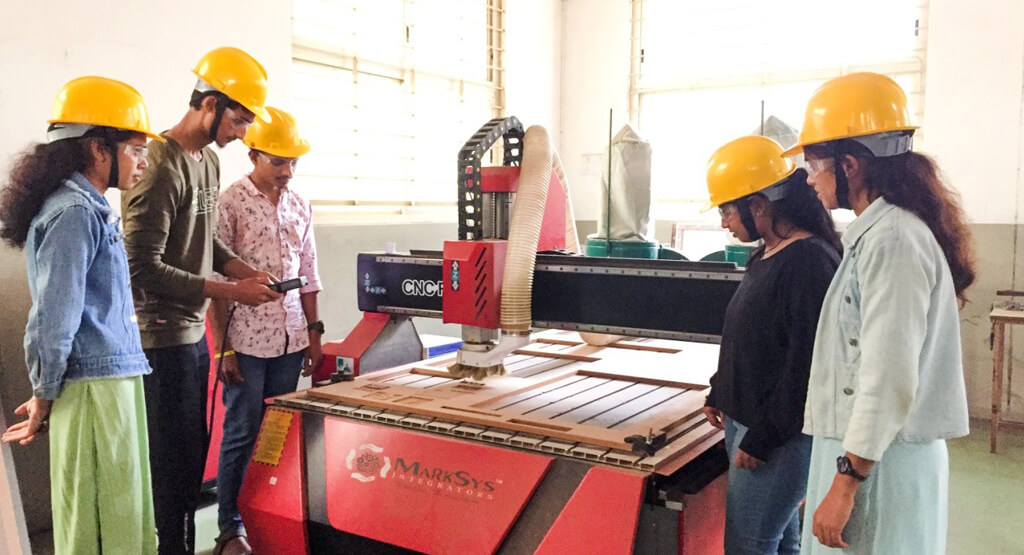Mechanical Engineers are actively involved in design and development of myriad systems ranging from the complex space shuttles to the naive bicycles.
They play a major role in all devices that are associated with motion or moving systems. Experts in this discipline have cognizance and ability to recognize real world problems, build and test prototypes of designs, and come up with creative solutions.

The Mechanical Engineering curriculum gives a strong fundamental background of engineering sciences, mathematics, materials, mechanisms, kinematics, thermal-fluid engineering, energy conversion, vibrations and controls, mechatronics, and mechanical design. This background is strengthened through instructional laboratories with hands-on experience and design courses. During senior years, students can choose to specialize within the program in design, thermal, manufacturing and cutting-edge technologies.
The updated curriculum ingrained with state-of-the-art technology trends recognizes Industry 4.0 as a key growth area to combat the impact of information technology on Mechanical engineering stream. It incorporates advanced courses such as Machine learning, Microcontroller and interfacing, and Programming industrial automation systems, into its learning purview. The regular theory and lab courses are complemented by pedagogical interventions to sharpen or develop soft skills like communication, teamwork, and critical thinking, essential for a successful career. Throughout the program, students have multiple opportunities to engage in team projects, guided by faculty and industry mentors, applying knowledge to address real-world engineering challenges and develop innovative solutions. The program provides options for student internships with industry partners and research labs that open-up career options.